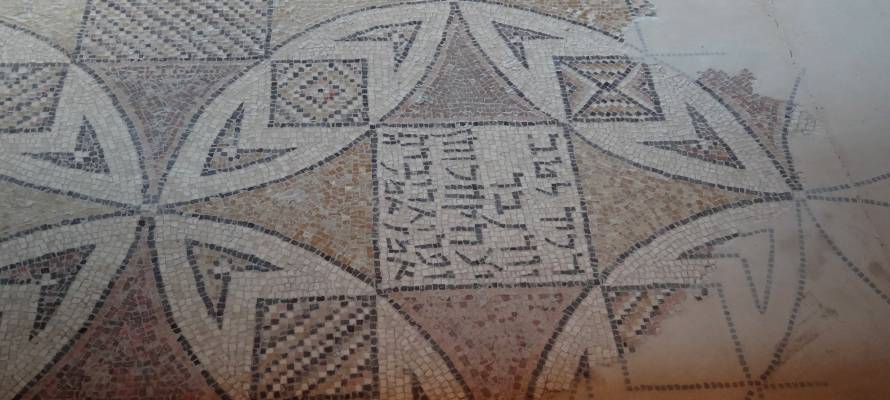Excavations at Zippori in the north have proven to be among the most exciting in all of Israel, offering a glimpse into an ancient cosmopolitan city.
New York City can be described in many different ways. It is sometimes referred to as “The Big Apple,” “the city that never sleeps” and even the “financial capital of the world.” All of these different names create expectations of what the city is like before a visitor even steps foot in one of its five boroughs.
In ancient Israel, the northern city of Zippori also had many grandiose names. It is referred to as the “ornament of the Galilee” and the city “perched on a mountain.” Even today, as Zippori lies in ruins, it is an extraordinary place to visit.
Excavations at Zippori have proven to be some of the most exciting in all of Israel. Visiting Zippori gives one a glimpse into a cosmopolitan city that thrived during the end of the Second Temple period and into the early Byzantine period.
During the Great Revolt by the Jews against the Roman Empire (66-70 CE), the Jewish community living in Zippori remained neutral. They did not join their brothers and sisters in the fight. Hence, the city of Zippori was not destroyed during the revolt, and therefore some amazing structures remained intact, which were uncovered in the last few decades.
The Talmud tells us there were 18 synagogues in Zippori, which boasted a large Jewish community. However, only one synagogue was found; it contains an elaborate mosaic with many common Jewish symbols, such as the Ark of the Covenant, seven-branched menorahs (candelabras) and several Biblical scenes. There are images of the Holy Temple and its vessels as well as the story of the binding of Isaac.
“The main theme of this mosaic is that God is the center of creation, he has chosen his people, the people of Israel, and in the future, due to his promise to Abraham on Mount Moriah, he will rebuild the temple and redeem the children of Abraham,” commented Hebrew University archaeologists.
At the top of the hill is an edifice referred to as the Dionysus building. Inside this extravagant home is a mosaic with over 1.5 million stones and 23 shades of color. It is referred to as the “Mona Lisa of the Galilee,” as it contains the image of a beautiful woman whose eyes seem to follow you wherever you go. The center of the mosaic tells the myth of Dionysus, the pagan god of the grape harvest, winemaking and wine. We do not know who lived in this building, but clearly they it was a wealthy and prominent citizen.
Exiting the Dionysus building and moving towards the theater, one will pass an area that was likely the Jewish quarter, where many ritual baths were discovered. Around the year 200 CE the Sanhedrin (Jewish court) moved to Zippori. It was there that the Mishnah (oral law) was edited and put into writing for the first time by Rabbi Yehudah Hanasi, who lived for some time in Zippori. The city of Zippori is mentioned many times in the Talmud.
Continuing on the path from the Jewish quarter, one would be amazed upon entering a 4,500-seat Roman theater. No Roman city would be complete without a theater, and Zippori was no exception.
Moving down to the lower part of Zippori, one comes across a building called the Nile House, inside which is a detailed mosaic depicting the celebration in Egypt of the flooding of the Nile River. The building, which contains dozens of beautiful mosaics, may have been used for celebrations and other types of gatherings, although scholars are not certain.
A visit to Zippori is an opportunity to go back in time. One can easily spend hours roaming the ancient roads and archaeological ruins. Every minute is a treat!
By Rabbi Moshe Rothchild
Licensed Tour Guide
